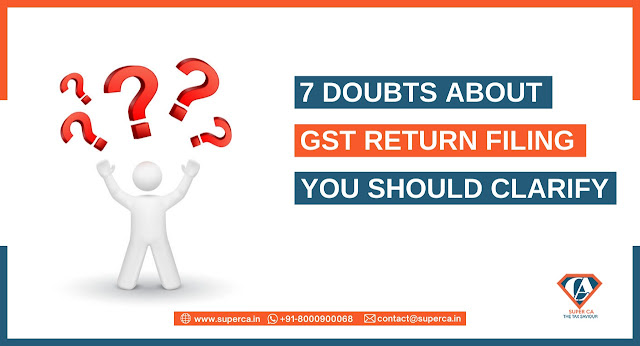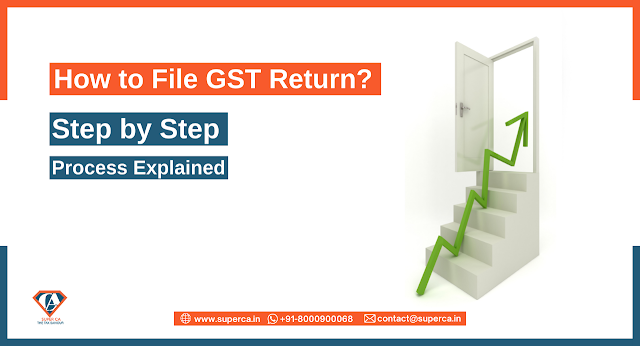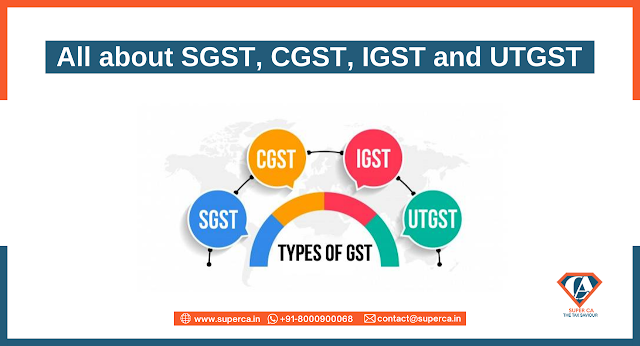7 Doubts About GST Return Filing You Should Clarify
Goods and Services Taxes or simply GST is an Indirect tax, applicable on the sale of Goods and Services. Multiple taxes like VAT, Service Tax, etc are subsumed into GST. With the motive of “One Nation One Tax”, the GST regime has made the compliance procedure more transparent, seamless, and intuitive.
Under GST, every registered individual has to get their GST Return filing done irrespective of the type of business or turnover or profitability during the period. Under the GST Regime, even a dormant business that has obtained GST registration must file the GST return. These returns are filed to pay taxes as well as to provide data to the government relating to the transactions made by the business during the period under consideration. Once you file GST returns, you will need to pay the resulting tax liability i.e money that you owe the government.
Since the GST tax structure was implemented just 4 years ago, this is new stuff for upcoming businesses. People getting new registrations have a lot of doubts regarding return filing, compliances etc. In this article, we’ll talk about seven major doubts that every newbie has.
Major Doubts regarding online GST return filing
1. Doubt on how to check online GST return filing Status.
The filing status can easily be checked by visiting the official GST portal link and then logging in by giving valid credentials.
2. The second doubt is who needs to do online GST return filing every month.
The law says that all GST registered regular suppliers are subjected to file GST Returns in GSTR-1, GSTR-2, and GSTR-3 on a monthly basis. But, to facilitate the ease of return filing for small and medium businesses with annual aggregate turnover not more than ₹ 1.5 Crore such taxpayers may opt to file returns in GSTR-1, GSTR-2, and GSTR-3 on a quarterly basis. There are some other returns as well which are required to be filed every month by specified taxpayers through GST Accounting Software.
3. Doubt on how many are required to be done
in general.
Presently, there are 19 different returns in total and the filing is based on the type of business, origin, turnover, monthly, annual, etc. But the basic GST Returns that need to be filed by all the normal/regular taxpayers regularly are the same which includes GSTR 1, GSTR 2A, GSTR 3B, GSTR9 and 9C.
4. The applicability of GST to trading in securities is also a confusing question that is very common amongst traders.
GST is not applicable to income from trading in stocks, shares, mutual funds, futures, options etc but it is mandatory to register under GST if the Aggregate Turnover exceeds the threshold limit of Rs. 40 Lakh (Rs 10 lakhs for special category states). The turnover as per ITR must match with sales reported in GST Return for traders. If the trader has income from any business other than securities trading and has GST Registration, it is advisable to report the trading turnover from securities trading under Non-GST Supply in the GST Return
5. Doubts regarding the returns which are
required to be filed by an e-commerce seller.
The GSTR-8 form is to be submitted every month by every registered GST e-commerce operator/platform. The operator/platform also has to file an annual statement of returns filed by 31/12 following the end of the FY in which tax was collected.
6. Many newbies have doubts regarding claiming of ITC.
It should be noted that all regular taxpayers should report the amount of input tax credit(ITC) in their monthly online GST return filing form GSTR-3B. Table 4 requires the summary figure of eligible ITC, Ineligible ITC and ITC reversed during the tax period.
7. Doubt of how a GST registered business terminates its operations permanently.
The answer is if any business wants to permanently terminate its operations, then form GSTR-10 is required to be filed which is also known as the final GST return form.
Final Thoughts
Online GST return filing is a very necessary element of being GST compliant. You will be liable to pay interest and a late fee if online GST return filing is not done within the due date. As per the GST Law, the late fee is Rs.100 for each day for each CGST and SGST. Thus, the total fine amount will be Rs.200 per day with a maximum of Rs. 5,000. However, this is subject to changes as notified by the government.
Apart from late fines, you will also be denied certain facilities if your online GST return filing is not done. For instance, blocking of GSTR-1 return filing facility, penalty at the rate of 10%, restriction of E-Way bill, and even cancellation of GST registration in a few scenarios. Hence, it must be filed within the given time period.





Comments
Post a Comment